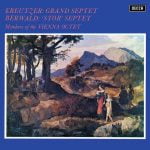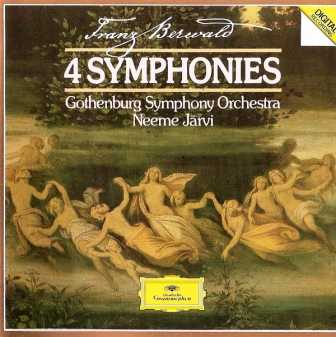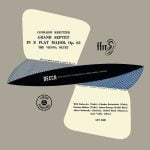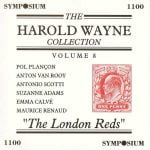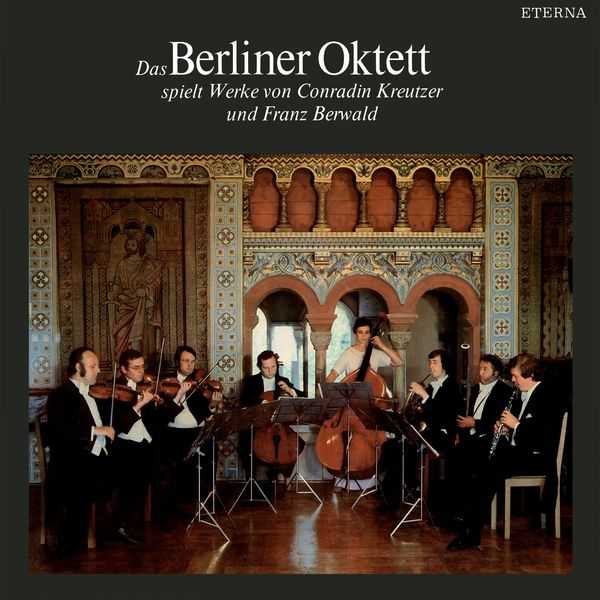
Composer: Conradin Kreutzer, Franz Berwald
Performer: Berlin Philharmonic Octet
Format: FLAC (tracks)
Label: Eterna
Release: 1981
Size: 254 MB
Recovery: +3%
Scan: cover
Kreutzer: Septett Es-Dur, Op. 62
01. I. Adagio – Allegro
02. II. Adagio
03. III. Menuetto: Moderato
04. IV. Andante maestoso
05. V. Scherzo: Prestissimo
06. VI. Finale: Allegro vivace
Berwald: Septett B-Dur
07. I. Introduzione: Adagio – Allegro molto
08. II. Poco adagio – Prestissimo – Adagio
09. III. Finale: Allegro con spirito
The Berlin Philharmonic Octet is one among several chamber ensembles that is based out of the Berlin Philharmonic, although it is among the most prominent, widely traveled, and enduring of such groups. This Berlin Classics issue, Kreutzer/Berwald: Septett(s), was recorded in 1979 and first released on an LP in 1981. This particular edition of the ensemble was a good one; made up of relatively young players, the five strings and three woodwind players achieve a nicely blended sound and have plenty of energy in fast-paced sections, such as in the Allegro con spirito of the Berwald. The liner notes haven’t been updated, which makes for a rather amusing contrast with more than two decades’ distance; according to them, Kreutzer is remembered only for his opera Das Nachtlager von Granada and Berwald for only two of his four symphonies. You wonder what the note author was thinking; even in 1979, Conradin Kreutzer (not the “Kreutzer” who was the dedicatee of Beethoven’s famous violin sonata) is noted above all for his lieder and choruses for male voices, but the Septet in E flat, Op. 62, is swiftly gaining popularity as a key chamber work of the early romantic period.
This appears to be the only combination on disc of the Kreutzer with Berwald’s once obscure, now-famous Sextet, and they are mutually complimentary — both derive their instrumentation from Beethoven’s Septet, Op. 20, both are stylistically quite outside the Biedermeier aesthetic current in Germany at the time and both were written within the decade of the 1820s. Of the two, the Berwald, definitely eccentric for its time and filled with exploratory, lushly Romantic harmonies, is easier to connect with for digital-era listeners than the Kreutzer, which hews more closely to its model and sort of straddles the stylistic bridge between classic and romantic. However, these are both very strong pieces and together illustrate well the passageway between the two eras, and the performances are exceptionally fine; horn players will admire Christian-Friedrich Dallmann’s handling of the fast staccato notes in Berwald’s Allegro con spirito, as well.
